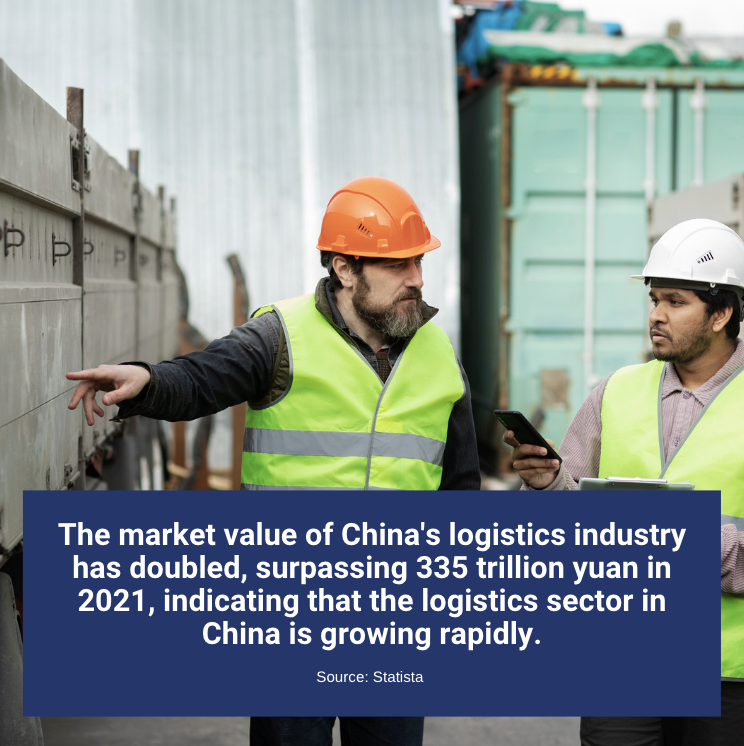Since China has long been a leader in the world of manufacturing, it is crucial to go there when looking for top operations and supply chain executives. Finding and choosing elite personnel has gotten more difficult due to China’s economic and regulatory environment, which is continually changing.
China’s corporate culture, market trends, and regulatory landscape must be thoroughly understood in order to find and hire high-performing operations and supply chain executives. It also demands the capacity to recognise people who possess the knowledge, expertise, and leadership attributes necessary for success as well as a broad network of contacts.
Turnover rate in China
A recent analysis by the human resources consulting company Mercer found that China had the world’s highest senior executive turnover rate, with an average tenure of just three years. This high turnover rate emphasises the significance of finding and choosing leaders who not only possess the knowledge and expertise necessary for the position but also possess the flexibility and fortitude to negotiate China’s dynamic business environment.

Executive Search for the Supply Chain and Logistics industry in China
In industries like transportation, purchasing, and supply chain management, where executives are required to have a thorough awareness of the local market and regulatory landscape due to the complexity and diversity of China’s supply chain ecosystem, this talent shortage is particularly acute.
In China, Executive Search firms often look for applicants that have a mix of technical and interpersonal abilities when hiring executives for positions in the operations and supply chain sector. Some of the essential qualifications and skills include:
- Experience in creating and implementing supply chain strategies that increase productivity, cut costs, and boost customer satisfaction is known as supply chain optimisation.
- Management of logistics operations, such as distribution, warehousing, and transportation, requires a thorough understanding. the capacity to coordinate a complicated network of carriers, service providers, and suppliers.
- Inventory control: Executive Search for positions in this field with be characterised by seeking specific knowledge of inventory management techniques for example, like as forecasting, demand planning, and inventory level management. knowledge of how inventory affects working capital, profitability, and customer service levels.
- Lean manufacturing: The application of lean manufacturing concepts to increase production efficiency, cut waste, and enhance quality.
- Experience in implementing and administering quality control systems to assure the quality of the produced goods and customer satisfaction.
- Managing vendor relationships, negotiating contracts, and assuring compliance with specifications for quality, pricing, and delivery are all aspects of vendor management are niche skills applicable to this sector that Executive Search firms will prioritise.
- Managing risk: Executive Search firms consider this important in any executive position no matter the sector
- Strong analytical abilities and practical experience in leveraging data analytics to inform corporate choices, optimise processes, and improve customer experience.
- Ability to work well with teams from many disciplines, such as sales, finance, and marketing, to ensure that supply chain plans are in line with larger corporate goals.
Executive Search firms in China must be proactive in locating and developing talent if they are to successfully meet this challenge. Building a strong industry network and collaborating closely with customers to create focused recruitment tactics are necessary to accomplish this. Utilising technology and data analytics to find suitable applicants and evaluate their qualifications is also necessary.
Navigating China’s complex regulatory framework is another significant issue for Executive Search businesses there. With a complex network of laws and regulations covering everything from intellectual property to labour practises, China has a highly regulated economic environment. To ensure that they are choosing candidates who have the necessary legal and regulatory understanding to operate successfully in China, Executive Search firms must be well-versed in these policies.
Executive Search challenges
Executive Search businesses in China must handle this problem by collaborating closely with legal and regulatory specialists to stay current on changes in the regulatory environment. In order to ensure that customers are completely aware of the regulatory requirements for the post and are choosing people who meet these standards, they must also engage closely with clients.
For businesses trying to flourish in this competitive market, finding high-performing operations and supply chain executives in China is still a top priority despite these difficulties. Executive Search firms can locate and choose top individuals who possess the knowledge, experience, and leadership attributes necessary to successfully negotiate China’s challenging business environment.
In conclusion, hiring high-performing operations and supply chain leaders in China necessitates a thorough knowledge of the nation’s corporate culture, market trends, and legal and regulatory framework. It also demands the capacity to recognise people who possess the knowledge, expertise, and leadership attributes necessary for success as well as a broad network of contacts.
Despite the difficulties presented by China’s rapidly changing economic and regulatory environment, Executive Search firms there can find and hire top talent by utilising technology and data analytics, establishing a wide network of contacts, and collaborating closely with clients to create targeted recruitment strategies.






